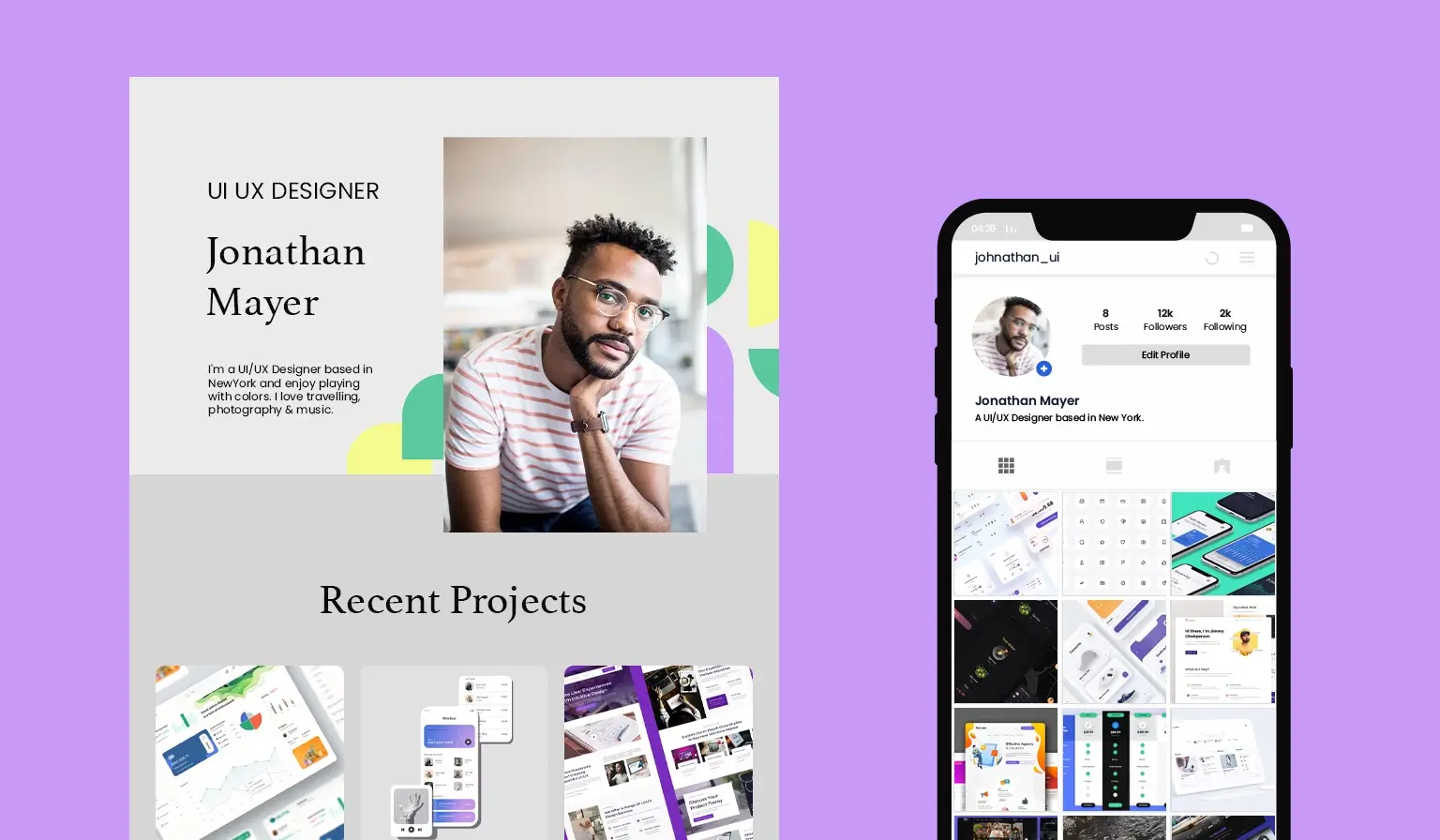Social Media vs Website: What’s Better for Your Freelance Business?

Both social media and your website play a significant role in shaping your freelance business's online presence. Social media platforms like Facebook, Instagram, Twitter, and LinkedIn are where people socialize, share content, and discover new opportunities. They offer a dynamic space to engage with your audience through posts, stories, and interactions.
On the other hand, a website is your digital storefront - a place where potential clients can learn more about your services in a structured manner. Your website is your own piece of the internet that you have full control over.
But which one should you go for? Is having only social media enough?
Pros and cons of social media
Compared to a custom website, social media is the easier one to set up. It's free for anyone to use, comes with promises of reaching a wide audience instantly, and lets you interact with potential clients in real time. With social platforms, you can showcase your work, share industry insights, and engage with followers.
However, investing your time and effort only into social media can backfire, and all it takes is a slight algorithm change. You don't own the platform or your account. You're basically renting without a contract and you can be kicked out at any time.
Algorithms constantly evolve, affecting how (and if) your content is shown to your audience. You have no control over the changes that impact your reach and visibility.
But even if you're not worried about the lack of control you have over your account, relying solely on social media comes with another drawback. You'll have to pay sooner or later if you want to reach anyone. Research shows that organic reach on social media is pretty low, with Instagram sitting at 7.6% and Facebook at 5.9%.
Organic reach on social media has been declining year in and year out, while ad spend has been going up. And it isn't slowing down either. Projections show that social media platforms will see a 3.86% annual increase in paid ads over the next four years.
In the end, all the effort you put into your social media content doesn't matter if people can't see it. And if you want to get it in front of more people, you have to pay. Not so free after all, is it?
Social media engagement rates by platform
The value of websites over social media
Unlike social media, your website is under your total control. It's a permanent online home for your freelance business. And just like the look and feel of your home tells anyone who visits who you are, your website shows clients what your business is all about.
With a website, you have full control over the design, content, and branding to showcase your unique skills and services. You decide how your brand is presented, what content to share, and how to engage with your audience without any restrictions from third-party platforms. No algorithm changes or account bans can take that away from you.
Your own website allows you to establish your brand identity with a custom domain name and personalized email address. Whether you're starting fresh or considering expired domains for their SEO benefits, having your own domain helps build trust with potential clients as they see you as a legitimate business rather than just another person on social media.
While a website does cost money initially, it's more valuable and cost-effective in the long run. If you put some effort into search engine optimization, your content will reach your target audience without you having to pay for ads.
Can you still take out ads on your website? Sure. But unlike running your business on social media, where paying for ads is a must if you want to be seen, with a website, it's only an added bonus.
How potential clients feel about websites
So, can you just stay off social media?
While social media isn't something you should rely on completely for your online visibility, ignoring it also isn't a good idea. Your website and your social media accounts play complementary roles in your overall online presence.
Your website acts as your virtual storefront, a centralized location for showcasing your expertise. It's what gives you credibility and makes you look professional, so you should definitely invest in good website design.
Social media, on the other hand, helps you engage with your audience, build relationships, and drive traffic to your website. It's there to attract attention and engagement so potential clients feel intrigued enough to visit your website and make a purchase.
By strategically sharing your website content on platforms like Instagram, Facebook, and LinkedIn, you can reach a wider audience and attract potential clients. Engaging with followers through comments, messages, and stories can also create a sense of community around your brand.
You can even display your social media content directly on your site, for example through a Facebook widget, making it easy for visitors to see your latest updates without leaving your page. Aside from a widget, you can also use a social-media aggregator app to pull together content from your various social platforms into one embeddable feed on your website.
Final thoughts
When it comes to deciding between social media and a website for your freelance business, the answer is not a simple either/or. The key is finding the right balance to create a professional image and have control over your online presence.
As far as potential clients are concerned, a website is no longer optional. It's where they go to decide whether or not they want to do business with you.








